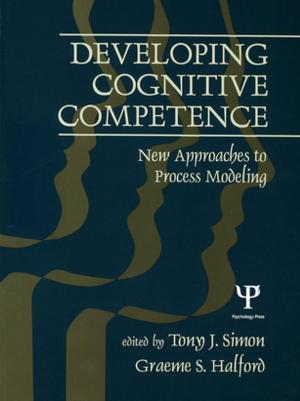| Author: | Ken Arnold | ISBN: | 9781351953597 |
| Publisher: | Taylor and Francis | Publication: | March 2, 2017 |
| Imprint: | Routledge | Language: | English |
| Author: | Ken Arnold |
| ISBN: | 9781351953597 |
| Publisher: | Taylor and Francis |
| Publication: | March 2, 2017 |
| Imprint: | Routledge |
| Language: | English |
The last few years has, within museums, witnessed nothing short of a revolution. Worried that the very institution was itself in danger of becoming a dusty, forgotten, culturally irrelevant exhibit, vigorous efforts have been made to reshape the museum mission. Fearing that history was coming to be ignored by modern society, many institutions have instead marketed a de-intellectualised heritage, overly relying on computer technology to captivate a contemporary audience. The theme of this work is that we can do much to reassess the rationale that inspires contemporary collections through a study of seventeenth century museums. England's first museums were quite literally wonderful; founded that is on the disciplined application of the faculty of wonder. The type of wonder employed was not that post-Romantic idea of disbelief, but rather an active form of curiosity developed during the Renaissance, particularly by the individuals who set about gathering objects and founding museums to further their enquiries. The argument put forward in this book is that this museological practice of using objects actually to create, as well as disseminate knowledge makes just as much sense today as it did in the seventeenth century and, further, that the best way of reinvigorating contemporary museums, is to return to that form of wonder. By taking such a comparative approach, this book works both as a scholarly historical text, and as an historically informed analysis of the key issues facing today's museums. As such, it will prove essential reading both for historians of collecting and museums, and for anyone interested in the philosophies of modern museum management.
The last few years has, within museums, witnessed nothing short of a revolution. Worried that the very institution was itself in danger of becoming a dusty, forgotten, culturally irrelevant exhibit, vigorous efforts have been made to reshape the museum mission. Fearing that history was coming to be ignored by modern society, many institutions have instead marketed a de-intellectualised heritage, overly relying on computer technology to captivate a contemporary audience. The theme of this work is that we can do much to reassess the rationale that inspires contemporary collections through a study of seventeenth century museums. England's first museums were quite literally wonderful; founded that is on the disciplined application of the faculty of wonder. The type of wonder employed was not that post-Romantic idea of disbelief, but rather an active form of curiosity developed during the Renaissance, particularly by the individuals who set about gathering objects and founding museums to further their enquiries. The argument put forward in this book is that this museological practice of using objects actually to create, as well as disseminate knowledge makes just as much sense today as it did in the seventeenth century and, further, that the best way of reinvigorating contemporary museums, is to return to that form of wonder. By taking such a comparative approach, this book works both as a scholarly historical text, and as an historically informed analysis of the key issues facing today's museums. As such, it will prove essential reading both for historians of collecting and museums, and for anyone interested in the philosophies of modern museum management.















